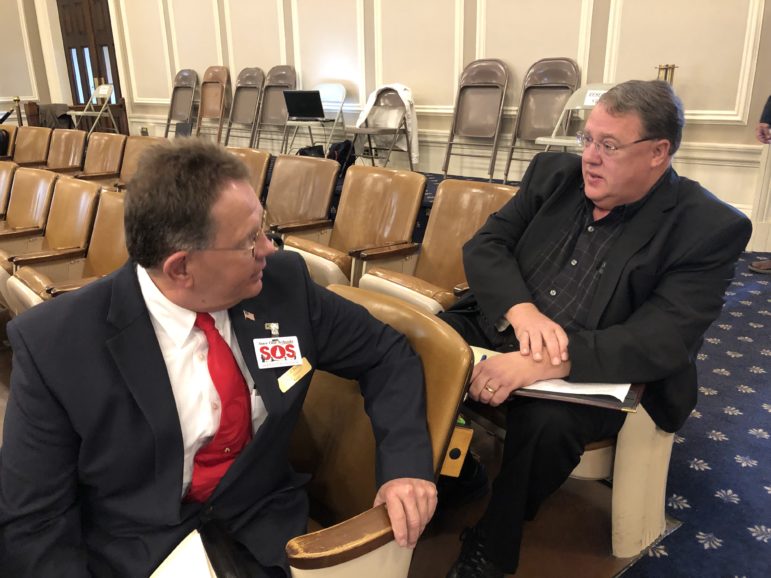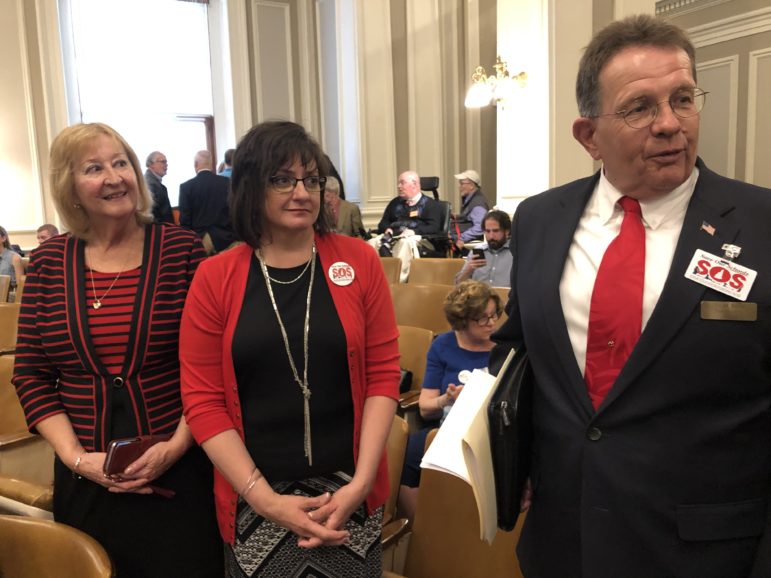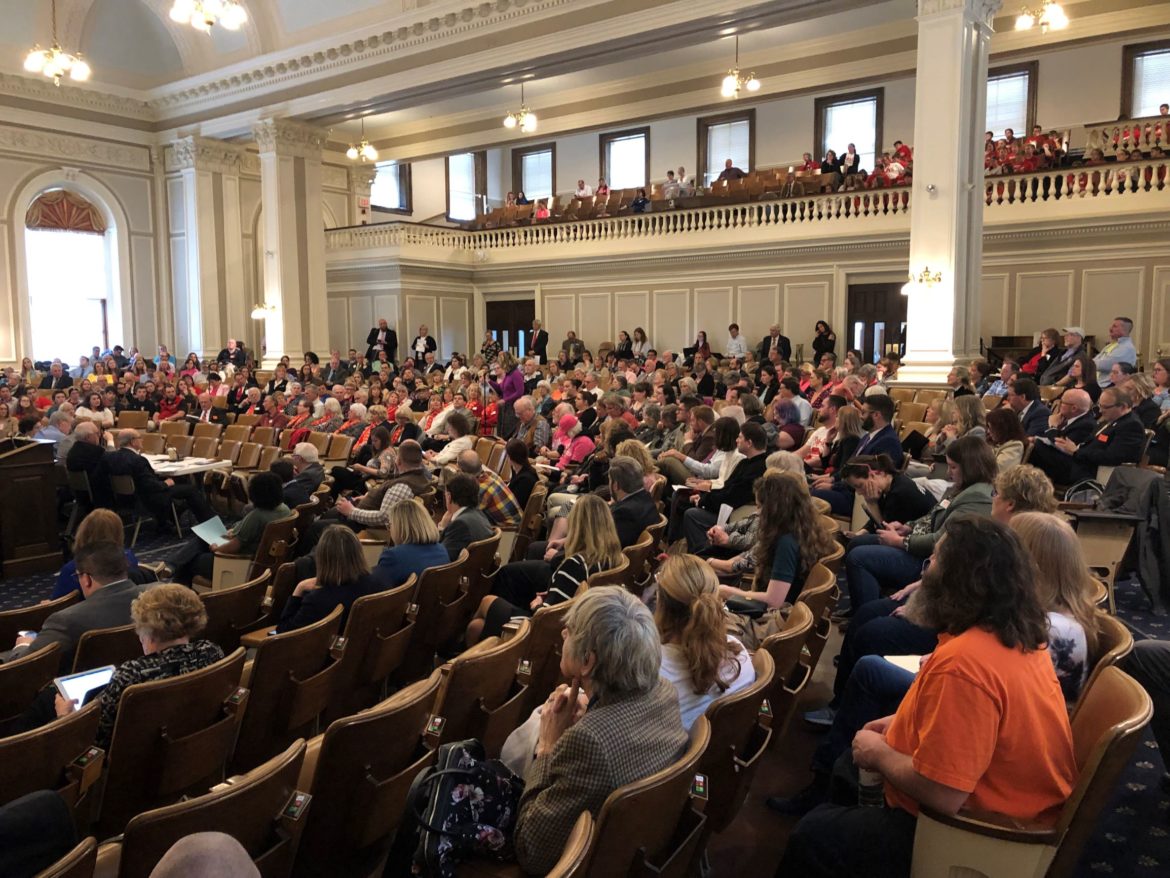By PAULA TRACY, InDepthNH.org
CONCORD – Berlin Mayor Paul Grenier told senators on Tuesday that his city is “at rope’s end.”
Grenier told the Senate Finance Committee that the state’s northernmost city has high property taxes, an elderly population, low property values and reduced state funding for public education.
“We’re going to collapse,” Grenier told the committee which held the first of three public hearings on the biennial budget Tuesday afternoon in Representatives Hall at the State House.
The hearings are on HB 1 and HB 2 as passed in the House – the Senate is still in the process of crafting their budget, after hearing agency presentations over the last three weeks and the public testimony Tuesday and Wednesday.
With the city’s upcoming budget, Berlin will need to eliminate two police officers, two firefighters, and a public works employee, among other cost-cutting measures, which also include the town having to close an elementary school.
“We need monies restored to (school) stabilization,” Grenier said. “So you can fulfill your Constitutional requirement to pay for an adequate education to our citizens.”
Grenier was among others, including a number of other North Country residents, who came to discuss the lack of funding for the state’s most vulnerable citizens.

Berlin Mayor Paul Grenier and Chuck Redfern of Keene chat before budget hearing Tuesday. Paula Tracy photo
They urged a fairer way to pay for education other than property taxes, more funding for services for those with disabilities and higher pay for their care providers and other state obligations that have been deferred or derailed over the past years.
Because the state is facing great economic times, Gov. Chris Sununu has promoted a budget that he hopes will meet many of those needs with one-time funds.
The House has passed a budget as well but it has a different approach.
After the afternoon and evening hearings Tuesday at the State House and another planned for 7 p.m. Wednesday at Manchester City Hall, the Senate will begin to deliberate their own budget in the coming weeks.
The three documents will then be merged and negotiated to make for a new budget for the state for 2020 and 2021. It will likely be done in June.

The first afternoon hearing Tuesday was attended by more than 250 people.
Paula Super of Merrimack said she favors finding a more fair way of funding New Hampshire schools.
“We have a statewide education property tax, but the local revenue never leaves the community,” Super said. “The money is not redistributed and does nothing to help struggling property-poor communities.”
“Why not go to where the money is, in capital gains?” she said.
The senators heard from some high school students.
Pittsfield High School student Stefne Ricci said her school has faced cut after cut in programs and last year, lost their own foreign language teacher.
“In the end, there is only so much Pittsfield can do. We can scrounge and beg and get creative. At some point, there is going to be nothing left unless there is really meaningful change at the state level.”

Cora Huter, a Berlin High School 11th grade student, said her school has also faced a reduction in educational opportunities in spite of what Gov. Chris Sununu said that it does not matter which ZIP code you are from.
She respectfully begged to differ.
Parish Mahoney, 19, of Henniker, asked for continued and improved funding for the services he receives for his disability in the Impact Program from the Granite State Independent Living Foundation.
“I have learned to get a job and to start life on my own. They are preparing me for college, and I have the job at the NHTI bookstore. I have learned how to prepare a resume for work opportunities…I ask that you please continue to fund the Impact Program. I know it has made a huge difference in my transition and I hope there are many students like me to follow,” Mahoney said.
Others had specific requests for the budget.
Rep. Laurel Stavis, D- Lebanon, requested the Senate carry forward $570,000 to demolish state-owned dilapidated buildings in her city’s center, which are impeding development.
Bob Clegg, a former state senator, addressed concerns about the wait list for services for those with developmental disabilities, noting that the workers are underpaid.
Amy Moore, director of Ascentria Care Alliance, said her organization has been underfunded and patients are going without care.
She said they turn away 30 to 50 cases a month for lack of funding.





